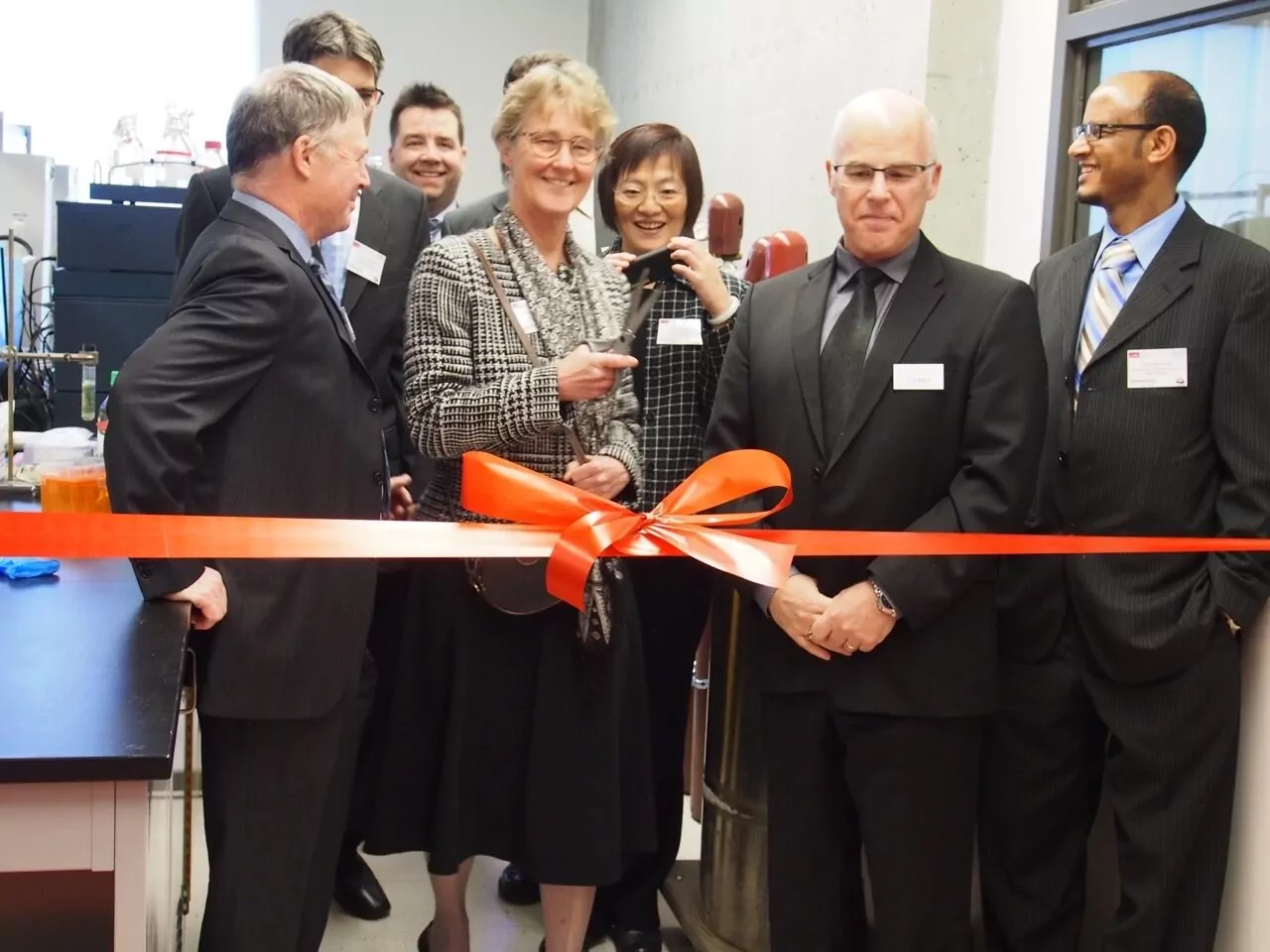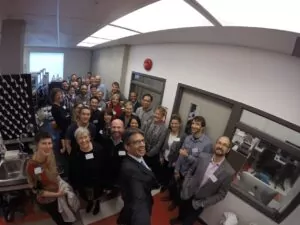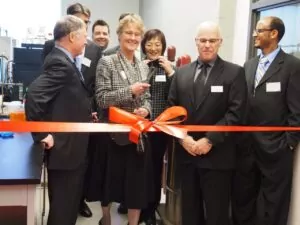Simon Fraser University Opens Suite of Mass Spectrometers for Natural Products Discovery Research

As a graduate student at the University of British Columbia, Dr. Roger Linington discovered his future life’s work serendipitously.
While studying sponges, it became clear to him that one of the challenges in studying macroorganisms is their limited or slowly replenishing supply. To perform mechanism and mode-of-action studies, he needed a larger, more accessible source of materials. Many of the compounds found in macroorganisms, it turns out, are also made in microorganisms.
Wanting to advance natural products research with minimal impact on natural resources, Dr. Linington began carving out his scientific career by going micro to understand the macro.

Today he’s a leading expert in marine and microorganisms. Dr. Linington bridges chemistry and biology to understand new compounds that hold promise as drug discovery targets. So when he moved his research lab in 2015 from the University of California Santa Cruz to Simon Fraser University in British Columbia, he was granted a unique opportunity to continue and expand upon his research.
The Linington Research Laboratory is focused on contemporary applications of marine natural products chemistry to biological problems. His team tackles specific interests in the development of new high-content screening technologies, the discovery and hit-to-lead development of lead scaffolds for drug development, and the determination of compound modes of action. Their research objectives are two-fold: first, the discovery of new compound classes for drug development against pathogenic bacteria, cancer, and global health parasites; and second, the creation of chemical probes to explore the basic biology of these target organisms.
Dr. Linington states that a big issue for the industry is efficient characterization of compound libraries. The traditional discovery model of analyzing one compound at a time is inherently inefficient and time-intensive with high rates of rediscovery.
“We need new techniques and innovations that focus on the biological target; techniques that compare analytes to an expansive universe of known molecules,” he said.
Dr. Linington and his colleagues recently celebrated the commissioning of a new suite of mass spectrometers for natural products discovery. Instruments include the ACQUITY UPLC I-Class System with a SYNAPT G2-Si High Definition Mass Spectrometer (HDMS) for chemical characterization and profiling, as well as an Alliance 2690 HPLC System with a single quadrupole detector for autopurification.

The technology is a strategic investment in the Linington Research Lab’s future. “Ion mobility greatly improves the accuracy of our analysis of our constituents. It gives us a third, independent aspect of resolution. Meanwhile, autopurification allows us to do chemical profiling so we know exactly which molecule to go after, and the data integration tools of UNIFI Software allow us to do things that otherwise would be very difficult.
“I’m excited about the team we’ve assembled here at SFU and what new discoveries are in store,” Dr. Linington emphasized.
Bolstered by this state-of-the-art analytical technology, Linington’s research team is focusing on exploring novel niches in biodiversity by looking at new sources of microorganisms, creating global strategies for the characterization of natural products, and developing new technologies for identifying the next mechanisms for cancer and cancer cell biology.
“With our creative and enthusiastic students, the technological innovations we’ve adopted in the lab, and the conceptual approaches to integrating data, we are excited about solving new scientific challenges,” Linington said.
Popular Topics
ACQUITY QDa (16) bioanalysis (11) biologics (14) biopharma (26) biopharmaceutical (36) biosimilars (11) biotherapeutics (16) case study (16) chromatography (14) data integrity (21) food analysis (12) HPLC (15) LC-MS (21) liquid chromatography (LC) (19) mass detection (15) mass spectrometry (MS) (54) method development (13) STEM (12)


